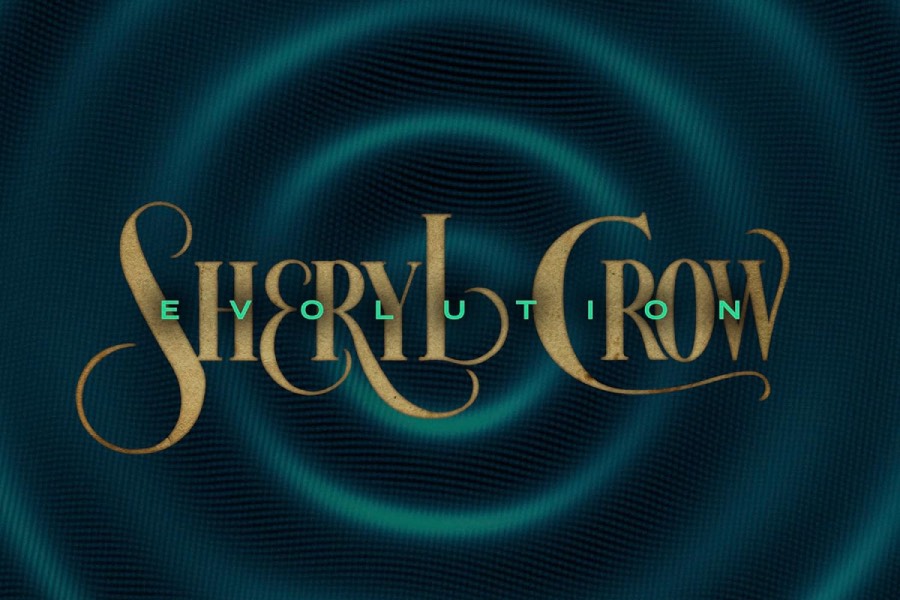Sheryl Crow’s new album, “Evolution,” was released March 29 and is a sugary addition to her repertoire of dance-it-out in your bedroom rock-and-roll songs.
Crow’s debut album was in 1993, titled “Tuesday Night Music Club,” following touring with famous musicians such as Michael Jackson, Foreigner, Stevie Wonder, Rod Stewart, Sting and Don Henley. Her top played song from that album, “All I Wanna Do,” won Best Female Pop Vocal Performance, Best New Artist and Record Of The Year at the Grammy Awards ceremony in 1994.
After her 2019 LP “Threads,” Crow claimed retirement was in the cards for her, however, it seems that “Evolution” has brought her back to her staple — music powered by unapologetic self-confidence and positivity.
Starting the album off right with “Alarm Clock,” Crow steps straight into romanticizing staying in your dreams as an escape from day-to-day troubles of lost keys and jobs. The start of the song has a strong electric guitar that her voice matches in cookie-cutter-like beats. The opening track is a catchy electronic dance beat that shows Crow’s vocals and lyrics off as the feel-good singer she’s known to be.
“Do It Again” has some cheeky one-liners that successfully provide a happy-go-lucky attitude to accepting simplicity and the unknown in life. At the start of the song, Crow sings, “Well, I took a walk with Jesus / I brought along Buddha, too / You know, everyone is welcome here.” This is the first hint in the album of verse writing connected to spirituality and larger-than-life themes. There’s a break in the music towards the end where Crow slows down to say she’ll probably mess up again. Listeners are forced to sit with the lyric before the music rolls back in and listeners move on, just as she encourages.
While “Love Life” lacks some of the lyrical zest of her other songs, it achieves a camp fire–song atmosphere full of nostalgia and bittersweet endings. About halfway into the five-minute song, Crow starts singing “Na, na, na, na, na, na, na,” which continues for the remaining runtime. “Love Life” keeps relatively slow and rhythmic up to and following this very long outro.
“You Can’t Change The Weather” and “Evolution” both match slightly existential lyrics with focused guitar strumming and fingerpicking. These songs are perfect examples of Crow’s spiritual and metaphysical connections explored through her penmanship. “You Can’t Change The Weather” provides a whimsical point of view to many of the heavier-hitting existential lyrics that “Evolution” obsesses over. Crow flourishes in this song in the overlaying of her voice and long-held notes.
The lyrics, “We can create, we can destroy / We can feel pain, we can feel joy / We can plant seeds and watch love grow / We can feel love ‘cause it’s written in the humankind” from “Evolution” encompass the themes of this album. Crow overlays her voice with an impressive guitar riff at the end of these lyrics, completing the psychedelic atmosphere of the song. While there’s something missing in the buildup that allows for her to achieve full usage of her expansive rock-and-roll vocal range, as heard in previous songs like “If It Makes You Happy,” the lyrics do create an easily readable flow to this lineup of songs.
Following these two is the softest song yet on the album: “Where.” Melodic and pretty, “Where” questions again what life is about but this time in a much more romantic tone. Crow gently sings “We will keep dancing through tomorrow, like lovers spinning in the air,” as if she were singing a lullaby. The piano takes over from the heavy-leading guitar in the previous tracks and invents a newly-found delicacy to her music. The song ends with the slow fading out of Crow humming “oohs” as the melody gently follows.
“Don’t Walk Away” is exactly what this album was missing: a love song. It’s distinctly different from the other tracks on the album because of its slow pace and subject matter. Unlike her usual songs, this one sounds more like a waltz and is much more melancholy. Crow sounds pessimistic toward the longevity of relationships but asks her subject to stay with her.
The Album “Evolution” ends with the songs “Broken Record” and “Waiting In The Wings.” These tracks are reminiscent of the positivity that radiated from her album “C’mon, C’mon.” Both songs pick the beat back up and end the album on a blissful and poppy note.
Sheryl Crow successfully combines her history of diverse vocals in country twang, raspy rock and melodic pop vocals in this album that is refreshingly new and distinctly Crow.





















